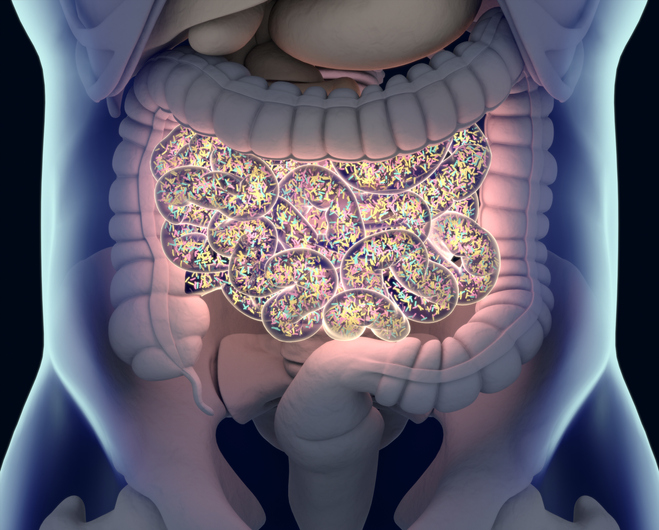
Inside Precision Medicine
@Inside_PM
Followers
5,141
Following
1,353
Media
12,099
Statuses
17,969
Exclusive news, features, and analysis on the research, tools, regulations, and applications driving precision medicine. From the publisher of @GENBio
New Rochelle, NY
Joined April 2014
Don't wanna be here?
Send us removal request.
Explore trending content on Musk Viewer
#2024MAMAVOTE
• 1483555 Tweets
Liz Cheney
• 582030 Tweets
Mazón
• 378127 Tweets
Diddy
• 298058 Tweets
#HappyBirthdaySRK
• 241250 Tweets
Christmas
• 209449 Tweets
#الهلال_النصر
• 125844 Tweets
taemin
• 58368 Tweets
Noroña
• 52325 Tweets
Alito
• 52238 Tweets
Hugh Hewitt
• 37574 Tweets
Thanksgiving
• 30540 Tweets
للهلال
• 30353 Tweets
فوز الهلال
• 29320 Tweets
Interlagos
• 21663 Tweets
Nuketown
• 19159 Tweets
Nuria Montes
• 19008 Tweets
Murillo
• 16025 Tweets
القحطاني
• 14054 Tweets
Drudge
• 13498 Tweets
تاليسكا
• 11346 Tweets
مستر فيفا
• 10476 Tweets
مالكوم
• 10040 Tweets
Last Seen Profiles
A New Generation of
#CRISPR
Technology
At the age of 30,
@janiceschen
has not only completed a PhD with Nobel prize winner Jennifer Doudna, but she has also helped co-found her own successful
#biotech
company
@mammothbiosci
. Read more about her journey:
1
45
159
A drug for
#idiopathicpulmonaryfibrosis
designed by
#AI
specialist
@InSilicoMeds
has passed its safety goals in a phase I trial. Learn more:
1
9
36
High quality
#microscopy
has captured mammalian translation of
#SARSCoV2
viral RNA in unprecedented detail. The virus uses a ‘pseudoknot’ structure to create tension in the ribosome and promote frameshifting to translate viral RNA. Learn more:
1
20
31
#Alzheimers
DNA Methylation Study Uncovers 84 New Genes Associated with the Disease
This meta-analysis, believed to be the largest of its type, reviewed six earlier DNA methylation studies of AD. Learn more:
0
9
30
Lipid-Lowering Drug Repurposed for
#Parkinsons
#AI
analysis of research papers has enabled the identification of a potential new role for the lipid-lowering drug probucol in Parkinson’s disease. Learn more:
0
9
25
.
@MayoClinic
researchers are developing ways to employ
#artificialintelligence
to increase the detection of potentially cancerous polyps during colonoscopy. Read more:
0
5
26
U.S. researchers have developed an
#antiviral
candidate drug targeting iron-sulfur clusters needed for
#SARSCoV2
RNA replicase to function properly and for the virus to reproduce successfully. Read more:
#COVID19
0
8
26
It is estimated that rare diseases affect more than 30 million people in the US alone, and between 300 million and 400 million people. Here, we profile three such parents whose commitments to their cause are impacting the
#raredisease
community. Read more:
2
9
24
CRISPR-Based Epigenome Editing Platform Identifies Genes That Improve T-Cell Therapies for
#Cancer
Treatment
Scientists engineered a
#CRISPR
based
#epigenomeediting
platform and discovered a master regulator of the genome that reprograms T cells:
0
11
26
#GeneEditing
Shows Potential for
#CysticFibrosis
A single injection that deploys gene editing technology can correct a common mutation that causes cystic fibrosis and improve lung and gastrointestinal symptoms, research in mice has revealed. Learn more:
0
7
23
High quality
#microscopy
has captured mammalian translation of
#SARSCoV2
viral RNA in unprecedented detail. The virus uses a ‘pseudoknot’ structure to create tension in the ribosome and promote frameshifting to translate viral RNA. Learn more:
0
9
24
Quicker and Cheaper Single Cell RNA Sequencing Method Developed
Austrian scientists have developed a method to individually barcode different cells before they are loaded onto a microfluidic chip. Learn more:
#sequencing
#rnasequencing
0
8
23
Antioxidant Could Help Combat Drug Resistance in Breast Cancer
The antioxidant N-acetylcysteine could help overcome resistance to alpelisib in PI3Kalpha mutated
#breastcancer
patients. Learn more:
1
13
21
Experts suggest that when a virus enters an immunosuppressed system, such as a cancer patient’s immune system, it lingers in the absence of adequate defenses and accumulates many mutations. Read more:
#COVID19
#coronavirus
0
12
24
Fatty Acid Found in Palm Oil Can Promote
#Cancer
Metastasis
In a mouse model of human mouth and skin cancer, researchers found that dietary consumption of palmitic acid, but not oleic acid or linoleic acid, seemed to promote metastatic tumor growth:
5
19
23
Scientists uncover new biomarker predicting the clinical response to
#CARTcelltherapy
for
#lymphoma
treatment. Learn more:
0
6
22
Mark your calendars for Friday, October 23rd and register today for our upcoming webinar--Optical Mapping in Rare Genetic Disease Diagnosis. Sponsored by .
@bionanogenomics
Registration is free:
#geneticdisease
#genetics
#opticalmapping
0
10
23
Single-cell RNA Sequencing Reveals Kidney Cancer Cellular Origins. Learn how:
#sequencing
#singlecellsequencing
0
11
23
RNA Sequencing Can Increase Diagnostic Rate for Rare Diseases
#RNAsequencing
can help diagnose
#rarediseases
caused by changes in
#geneexpression
that are not detectable using standard
#genomicsequencing
methods. Learn more:
0
5
20
Junk DNA Sequence a Likely Driver of Telomerase Gene Activity
Researchers found that deleting VNTR2-1 from
#cancer
cells—both in a human cell line and in mice—caused telomeres to shorten, cells to age, and tumors to stop growing. Learn more:
0
7
22
Researchers based in Madrid have identified a microRNA biomarker that can accurately diagnose patients with the cardiac inflammatory condition
#myocarditis
, something that has been hard to diagnose accurately in the past. Learn more:
0
9
22
Researchers discovered eliminating the gene SRC-3 in breast and prostate
#cancer
animal models led to a lifelong anti-cancer response. Also, transferring immune cells without SRC-3 to animals with breast cancer tumors killed the tumor. Learn more:
0
9
21
A new study confirms previous suspicions that
#Parkinsonsdisease
may have an inflammatory or autoimmune component, as those with the condition have a notably different gene expression profile in their T cells compared with healthy controls. Learn more:
0
12
20
Researchers at
@UCSF
have discovered how
#cancer
cells evade targeted therapy using an escape mechanism called phenotype switching, potentially explaining the failure of precision therapies for
#glioblastoma
to date. Read more:
0
3
21
Mitochondrial DNA Triggers Inflammation in
#SickleCellAnemia
Patients
The red blood cells of people with this chronic condition seem to accumulate mitochondria, which are absent from healthy blood cells. Learn more:
1
15
20
New Study Illuminates Bacteria’s Role in
#PancreaticCancer
Live bacteria from cystic pancreatic lesions, which are precursors to pancreatic cancer, have been found to have an over-representation of Gammaproteobacteria and Bacilli. Learn more:
0
7
20
.
@IncellDx
Receives CE Mark for First
#LongCOVID
Diagnostic
The test, which demonstrated greater than 90% accuracy across
#COVID
strains is set to launch in the European Union this month. Learn more:
0
8
18
.
@RevealGenomics
’ ctDNA- and
#machinelearning
based liquid biopsy predicts response to certain therapies and survival in
#breastcancer
study. Read more:
0
10
19
THIS FRIDAY, join us for our upcoming free webinar--Optical Mapping in Rare Genetic Disease Diagnosis.
Sponsored by .
@bionanogenomics
. Register today:
#geneticdisease
#genetics
#opticalmapping
#webinar
#raredisease
1
8
20
Scientists at
@UTokyo_News_en
have designed an artificial hairpin-like DNA molecule which is able to target and kill
#cancer
cells by binding to microRNA (miRNA) molecules that are overproduced in certain cancers. Learn more:
0
9
20
Designer Peptide Halts
#Neurodegeneration
Researchers have designed a peptide that can block the toxic effects of a protein linked with neurodegenerative disease, which could potentially be delivered via nasal spray. Learn more:
0
8
18
The digital edition of the December issue is now available.
We find ourselves in this issue focusing on the burgeoning field of
#proteogenomics
and the advancement of single-cell technologies being used to delve into the proteome more deeply. Read now:
0
7
20
Researchers at
@ColumbiaMed
have engineered probiotic bacteria to act as personalized cancer vaccines that can activate the immune system to target and destroy cancer cells. The new approach harnesses the natural tumor-targeting properties of bacteria.
1
5
20
AI-Designed Protein Used to “Wake Up” Silenced Genes
By combining
#CRISPR
technology with a protein designed using
#artificialintelligence
, individual dormant genes were awaked by disabling the chemical “off switches” that silence them. Learn more:
0
9
16
Scientists have discovered a new
#genetic
disease, which causes some children’s brains to develop abnormally, resulting in delayed intellectual development and often early onset cataracts. Affected children also developed microcephaly. Learn more:
0
3
20
Innovative research from
@uottawa
suggests that edaravone, a drug currently used to treat ALS, could be repurposed to fight glioblastoma. The study demonstrates that edaravone targets brain tumor stem cells, responsible for tumor growth and recurrence.
1
6
20
Researchers at
@umichmedicine
report the development of new biomarkers that help in the early screening of patients for the development of
#myocarditis
following ICI
#cancer
therapy. Learn more:
0
2
18
In Another Hemophilia Advance,
@pfizer
Reports Positive Results for
#GeneTherapy
. Learn more:
0
7
18
A biomarker has been found that distinguishes whether ductal carcinoma in situ, a sometimes benign
#breastcancer
, will become invasive. Learn more:
0
7
19
Scientists at
@UTokyo_News_en
have designed an artificial hairpin-like DNA molecule which is able to target and kill
#cancer
cells by binding to microRNA (miRNA) molecules that are overproduced in certain cancers. Learn more:
0
8
19
Since the start of the pandemic, mRNA vaccine development to combat
#COVID19
has happened extremely quickly, but can these scientific advances can have a positive impact on the development of cancer vaccines? Read more:
0
10
19
#DeepLearning
Model Can Predict Adverse Drug-Drug Interactions
A deep learning model based on gene expression data can accurately predict whether a drug will adversely interact with other drugs. Learn more:
0
11
15
Join us November 15 for our free webinar sponsored by
@bionanogenomics
This webinar is intended to provide the perspectives of
@kanagalshamanna
and
@garciamanero
on the utility of Optical
#GenomeMapping
in Myelodysplastic Syndromes. Register today:
0
4
19
Could a Tiny Molecule Be the New Target for Alzheimer's Disease?
Scientists have discovered that a tiny molecule called microRNA-132 could pose as a potential therapeutic target for
#Alzheimersdisease
. Learn more:
0
7
17
Quicker and Cheaper Single Cell RNA Sequencing Method Developed
Austrian scientists have developed a method to individually barcode different cells before they are loaded onto a microfluidic chip. Learn more:
#sequencing
#rnasequencing
0
8
19
A recent study has linked spike protein in the bloodstream with rare cases of
#myocarditis
following vaccination with an
#mRNA
#COVID19
vaccine. Learn more:
0
6
17
New research from
@WUSTLmed
shows that a focused ultrasound technique called
#sonobiopsy
releases
#neurodegenerative
disease biomarkers, a technology that could be leveraged for the earlier detection of
#Alzheimersdisease
. Learn more:
0
4
17
.
@precisionlifeAI
released research that identifies 73 genes that are highly associated with the severe and fatigue-dominant forms of
#longCOVID
. Learn more:
0
9
19
.
@PacBio
is collaborating with
@RadyGenomics
on a study using long-read whole
#genomesequencing
to identify rare disease cases, aiming to provide genetic answers for undiagnosed patients. Learn more:
0
6
19
A new method by which cells turn genes on and off has been described by
@UTSWNews
researchers in Cell. Their findings could lead to new ways of controlling gene regulation and possibly new treatments for various diseases. Learn more:
0
3
17
Researchers ID Four Distinct Subtypes of Autism
A brain study has found that people with
#autism
can be classified into four distinct subtypes based on their brain activity and behavior. Learn more:
0
4
13






















































































































